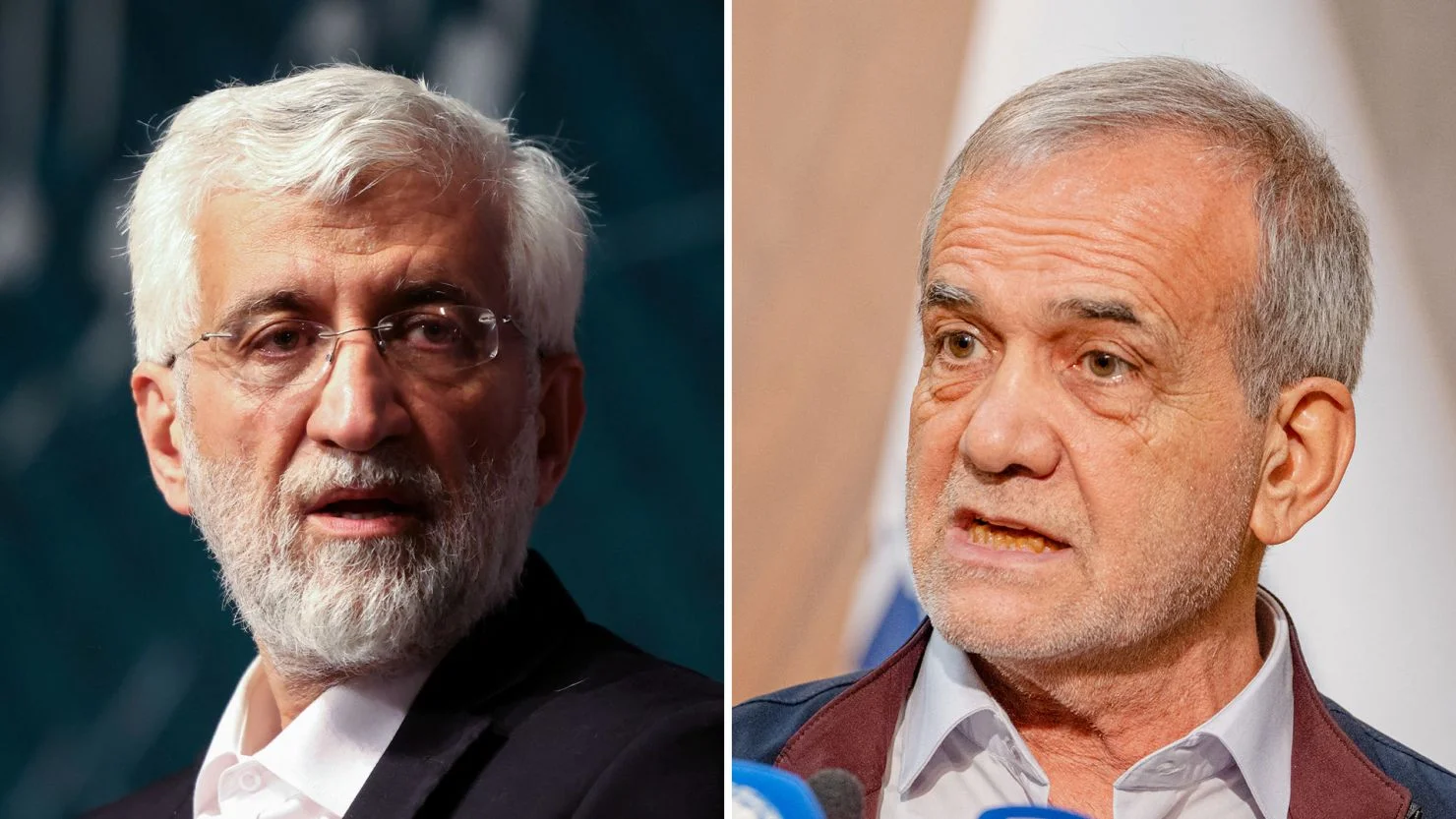
A reformist candidate has emerged as the frontrunner in the first round of Iran’s presidential election, setting up a runoff against a conservative hardliner next week.
In Friday’s election, none of the four candidates secured more than 50% of the vote, necessitating a second round on July 5. The election recorded the lowest voter turnout since the establishment of the Islamic Republic in 1979.
Reformist lawmaker Masoud Pezeshkian and ultraconservative former nuclear negotiator Saeed Jalili will compete in the runoff, as confirmed by Mohsen Eslami, the election committee’s spokesperson.
Pezeshkian led with 42.5% of the votes, while Jalili followed with 38.6%, according to the state news agency IRNA. Out of 60 million eligible voters, 24 million participated, resulting in a 40% turnout, Eslami reported.
The Guardian Council, a powerful 12-member body overseeing elections and legislation, will review the results before the two candidates resume their campaigns.
The snap election was called after Iranian President Ebrahim Raisi died in a helicopter crash on May 19, along with Foreign Minister Hossein Amir-Abdollahian and other officials.
In a bid to consolidate the conservative vote, two conservatives withdrew from the race just a day before the elections.
Pezeshkian was the only reformist candidate allowed to run after the Guardian Council barred dozens of other contenders.
The Iranian electoral process has recently been plagued by voter apathy, causing embarrassment to an establishment that has traditionally relied on high voter turnout to support its democratic credentials and popular legitimacy.
Finding Valentine's Day movies can often feel like digging through a shallow well of tired…
Chinese Foreign Minister Wang Yi warned at the Munich Security Conference against "knee-jerk" calls for…
Prime Minister Shehbaz Sharif has unveiled a massive Rs38 billion Ramazan relief package in Islamabad.…
British screenwriter Jack Thorne is at the Berlinale this year, promoting his adaptation of the…
Ireland’s decisive victory over Oman in Group C of the T20 World Cup showcased their…
Gold prices have rebounded in both international and domestic Pakistani markets on Saturday, reversing some…
This website uses cookies.